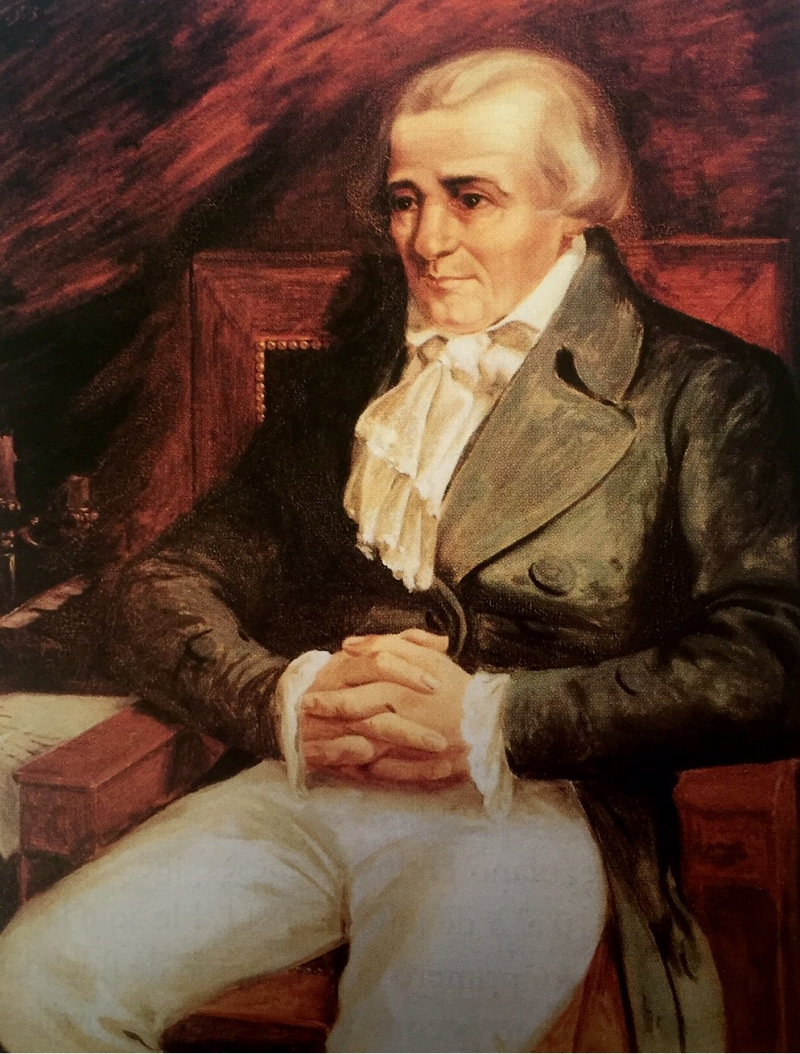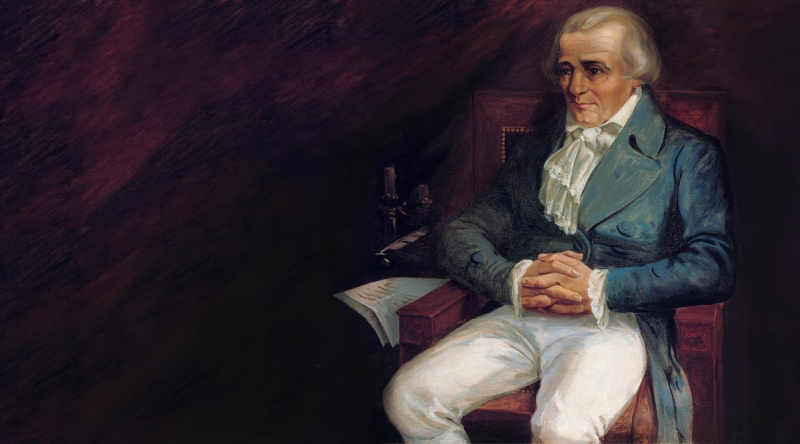Juan Germán Roscio
Juan Germán Roscio (May 27, 1763 - March 10, 1821) was a Venezuelan lawyer and politician of Italian descent. During Venezuela's First Republic, he served as Secretary of Foreign Affairs for the Junta de Caracas, as Venezuela's first foreign minister, and as Chief of the Executive. He was also the editor of the Gazeta de Caracas and the owner of the Correo del Orinoco. He was the primary editor of Venezuela's Declaration of Independence, as well as the chief architect of the Venezuelan Constitution of 1811 and the electoral rules for the first Congress. In 1819, he was also the president of the Angostura Congress and the vice president of Gran Colombia. Now he is considered one of the most important historical figures in Venezuela.
Roscio was a key figure in the Venezuelan Declaration of Independence, serving as a "representative of the people" during the 19 April 1810 revolution. During the Supreme Junta, he held the foreign ministry and lobbied for emancipation, particularly during the Constitutional Congress of 1811. As a representative for Calabozo at the Congress, he helped draft the Declaration of Independence, which was signed on July 5, 1811. He also contributed to the creation of the 1811 Federal Constitution, which was approved on December 21, 1811.
In August 1810, he established the Sociedad Patriótica, which was later attended by Francisco de Miranda and where Simón Bolívar delivered his famous "Acaso 300 años de calma no bastan" speech.
That March, he was elected as a substitute member of the 1812 triumvirate. As part of his role, he advocated for Miranda to be named Generalisimo and Dictator of Venezuela. Following Domingo de Monteverde's victory and the defeat of the First Republic, Roscio was imprisoned in Spain's Arsenal de la Carraca. He was then moved to Ceuta with seven other inmates, including José Cortés de Madariaga, Juan Pablo Ayala, Juan Paz del Castillo, Francisco Isnardi, Joseph Mires, and Juan Baraona. He escaped to Gibraltar with three of them in 1814, but the British authorities extradited him to Spain. Roscio sent a letter to King George IV through close friend Thomas Richard, which influenced Fernando VII's decision to release the four prisoners.
Roscio then traveled to Jamaica and then to the United States, where he published Triunfo de la Libertad vs. Despotismo (Philadelphia, 1817). He backed Simón Bolívar in Angostura in 1818 and continued to do so throughout the formation of Venezuela's Third Republic and Gran Colombia. During this time, he served as finance minister, president of the Angostura Congress, and vice president of the Venezuela and Gran Colombia Departments. On the eve of acting as president of the Cúcuta Congress, Roscio died on March 10, 1821.
Roscio established paper money in Venezuela, coining the name "Bolívar", which is still used today. He also served as the second director of the Orinoco Mail and advocated for the establishment of a national library.
His remains were decreed to be interred in Venezuela's National Pantheon in 2011, a process that has been delayed due to difficulties in correctly identifying his actual remains.







